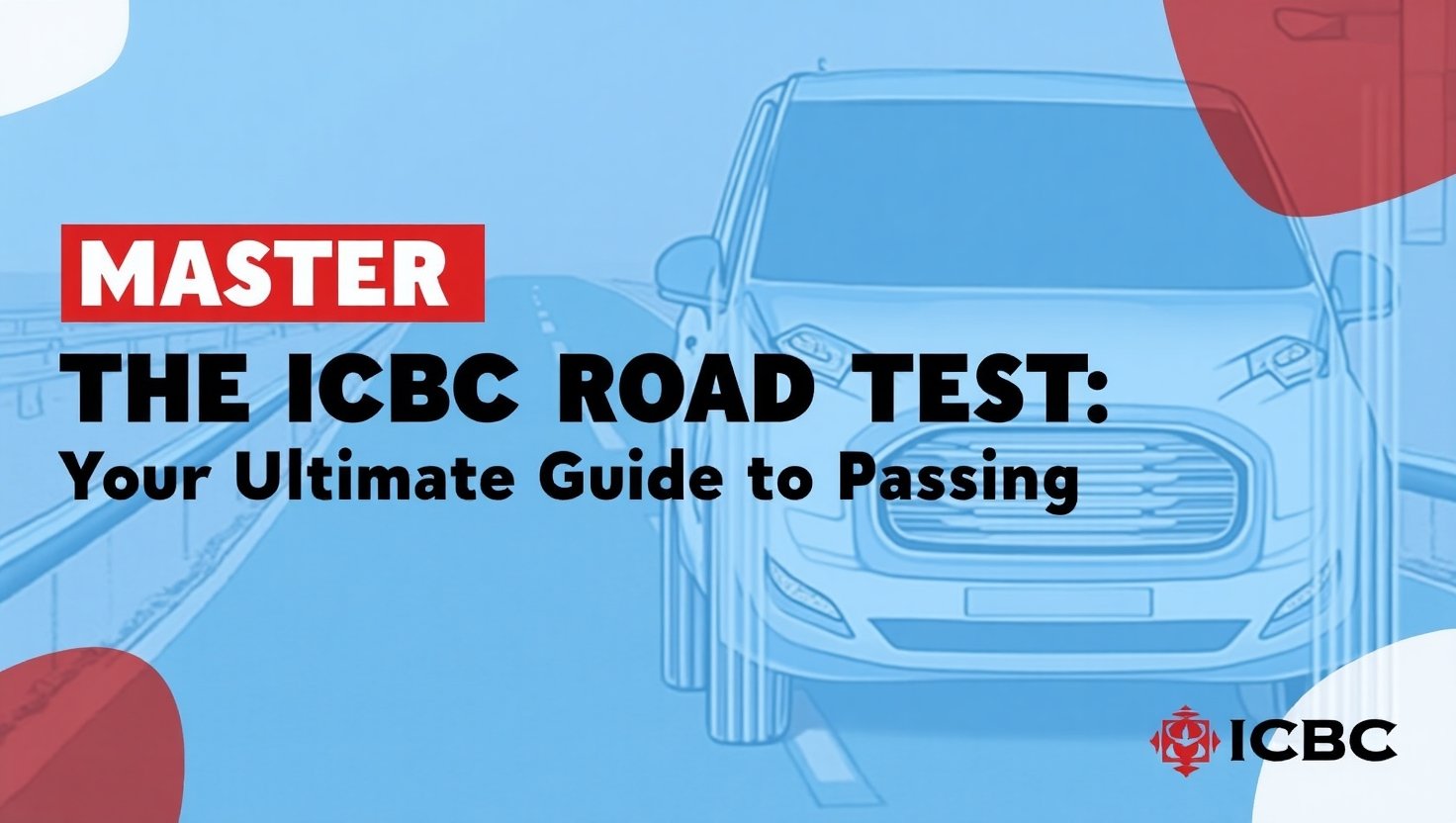The ICBC Road Test is an essential milestone for drivers in British Columbia, Canada. Whether you are aiming to move from a learner’s (L) or novice (N) licence to a full driver’s licence, understanding the process, requirements, and strategies for success can make a significant difference. This detailed article outlines everything you need to know about the ICBC road test, from booking and preparing to frequently asked questions, following Google’s EEAT (Experience, Expertise, Authoritativeness, Trustworthiness) principles to ensure reliable and helpful information.
What is the ICBC Road Test?
The Insurance Corporation of British Columbia (ICBC) road test assesses your ability to drive safely and legally on public roads. Passing the road test allows you to progress through B.C.’s Graduated Licensing Program (GLP), moving from a Class 7L (Learner) to Class 7N (Novice) and ultimately to a Class 5 (Full License).
ICBC Road Test Types and Eligibility
1. Class 7 Road Test (Learners upgrading to Novice):
- Must have held the L licence for at least 12 months.
- Maintain a clean driving record.
- Pass the knowledge test and vision screening.
2. Class 5 Road Test (Novice upgrading to full licence):
- Must have held the N licence for at least 24 months, or 18 months if you completed an approved GLP course.
- No driving prohibitions or suspensions in the past six months.
- Safe and responsible driving record.
Booking and Preparing for the Test
- Booking: Road tests can be scheduled online up to 180 days (six months) in advance. Booking early is recommended, as wait times can extend to several months, especially in busy seasons.
- Appointment Reminder: ICBC will send reminder emails seven and three days before your appointment.
What to Bring:
- Valid ID: One primary and one secondary identification document.
- Current BC Driver’s Licence (L or N).
- A safe, reliable, and insured vehicle (with valid registration and insurance papers).
- Road test fee payment.
- Glasses or contact lenses (if required for driving).
Vehicle Requirements
Before the test begins, your examiner will inspect your vehicle to ensure that it is safe and compliant:
- Working brakes, turn signals, and headlights.
- Clear windshield.
- Functioning horn and mirrors.
- Proper tire inflation and tread.
- No safety issues or broken equipment (e.g., seat belts, door handles).
What to Expect During the ICBC Road Test
- Pre-Test Vehicle Check: Examiner will inspect major safety features (lights, brakes, horn, signals).
- On-Road Test (30–45 minutes): Evaluates skills such as:
- Starting, stopping, lane changes, and turns.
- Navigating intersections, yield, and stop signs.
- Parallel and reverse parking.
- Speed control and school zone awareness.
- Right-of-way and hazard perception.
- 360-degree checks and shoulder checks.
Top Tips to Pass the ICBC Road Test
- Practice driving as often as possible.
- Arrive at least 15 minutes early.
- Practice complex maneuvers like parallel and reverse parking.
- Use the same vehicle for practice and the test for familiarity.
- Maintain awareness: Always shoulder check when turning, merging, or changing lanes.
- Keep within 30cm of the curb when parking
- Watch posted speed limits, especially in school, playground, and construction zones.
- Ask questions if unsure about the examiner’s instructions before the test begins.
- Stay calm and focused: Manage stress and take deep breaths.
- Take lessons from a certified driving school if possible.
Common Mistakes That Lead to Failure
- Failing to perform proper shoulder and mirror checks.
- Speeding or driving too slowly.
- Poor vehicle control during turns or parking.
- Not coming to a complete stop at stop lines/crosswalks.
- Incorrect positioning when stopping at intersections.
- Lack of observation and hazard acknowledgment.
Frequently Asked Questions (FAQs) about the ICBC Road Test
1. How do I book my ICBC road test?
You can book, reschedule, or cancel your road test online through the ICBC website. New times may become available as appointments are updated.
2. What happens if I fail the ICBC road test?
After a failed attempt, you must wait 14 days before retesting, increasing to 30 days after a second fail, and 60 days after a third.
3. Can I use a rental or car-sharing vehicle for my test?
Yes, but you must provide an original, company-signed authorization letter for ICBC use on official letterhead.
4. What documents are required on test day?
Bring your valid ID, current license, registration, proof of insurance, and any needed eyewear. If using a car-sharing vehicle, the authorization letter is also necessary.
5. Can I request a road test examiner of a specific gender?
Yes, ICBC allows you to select the gender of your examiner to ensure a comfortable testing environment
6. What’s the best way to prepare for the ICBC road test?
Practice extensively, study the driver’s guide, use online resources like the ICBC practice knowledge test, and consider professional lessons
Mastering the ICBC road test is about preparation, practice, and staying composed under pressure. By understanding every requirement, common pitfalls, and preparing with the right resources, you boost your odds of success and set the foundation for safe, responsible driving on B.C. roads.

